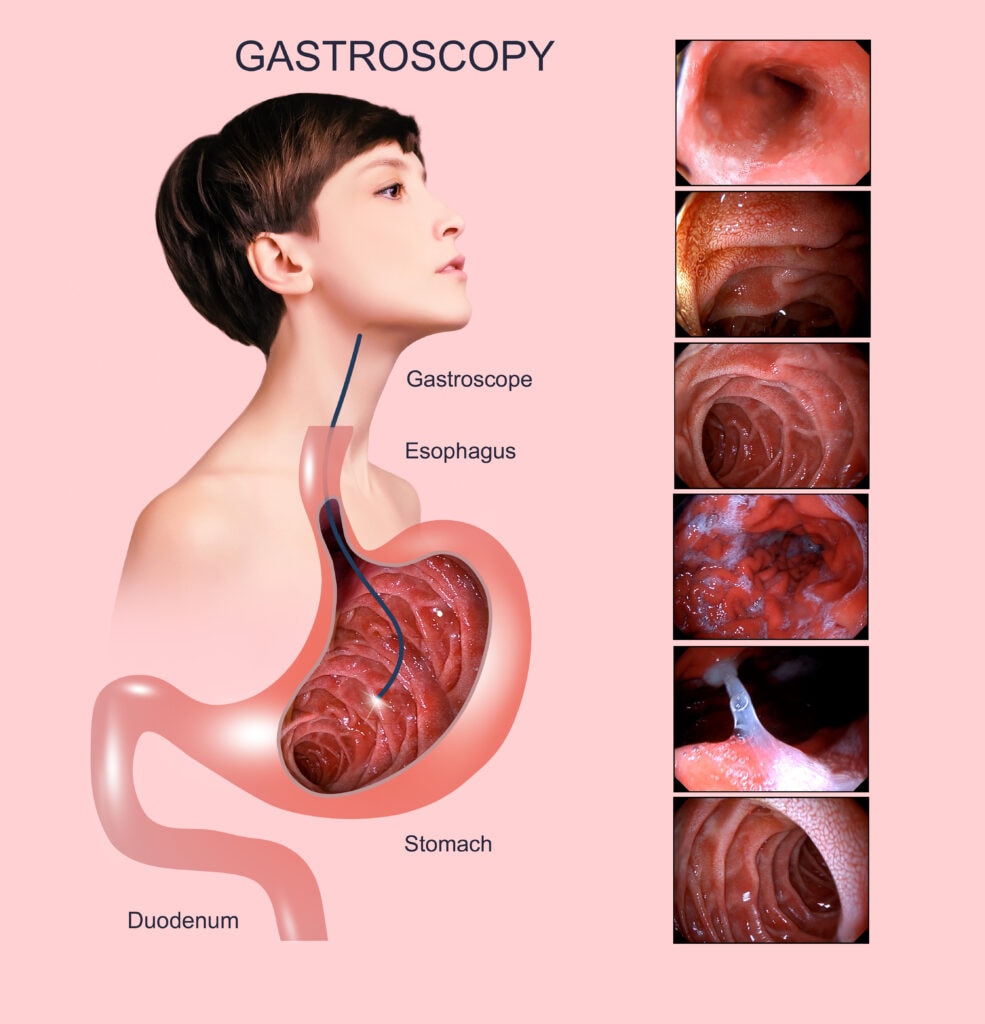What Is a Gastroscopy?
A Gastroscopy involves using a thin flexible tube (endoscope) to examine the upper digestive tract, usually to look for ulcers or polyps. The procedure can also be used to treat conditions like bleeding ulcers, widen a narrow oesophagus (dilatation), or remove a foreign body. Doctors take tissue samples (biopsies) of anything unusual they see, and can remove any polyps they find.
Self Pay Surgery Costs for Gastroscopy in Australia
Public Wait Time can be up to
The Public Health System In Australia Has A Waiting Period For General Surgeries - 90% Of Patients Waited This Length Of Time For This Procedure In The 2019/2020 Calendar Year.

Who is a Gastroscopy for?
Anyone with chronic indigestion, nausea, or difficulty swallowing — and whose doctor detects or suspects inflammation of the stomach caused by an ulcer or polyp.
What are the benefits?
There are benefits for having a gastroscopy which include:
- investigate symptoms such as indigestion, nausea, or difficulty swallowing.
- to show if there is inflammation, an ulcer or a polyp or other growth.
- to treat conditions, such as bleeding ulcers,
- to widen a narrow oesophagus (known as dilatation), or to remove a foreign body.
- Doctors can take tissue samples (biopsies) of anything unusual they see, and can remove polyps.
What happens During Surgery?
Gastroscopies take 15 – 30 minutes. Most people have a mild local anaesthetic to minimise any pain or discomfort.
How long will I stay in hospital?
You will go home the same day.
What is my recovery time?
You should make a full recovery within one day
Do you qualify for This Self Pay Procedure?
You are suitable for this surgery if:
- You are over 16 years of age
- You are not pregnant
- You do not require complex rehabilitation or have a chronic disease that would require immediate post-operative care in an intensive care unit
- You do not have sickle cell anaemia, renal failure or have had a cardiac arrest or cardiac intervention (e.g. insertions of stents) in the last six months
Payment Plans
If you’re looking for ways to pay for your surgery, there are options available with Self Pay Surgery. From using your own superannuation, to getting finance from one of our Pay Later payment providers, check our Payment Plans page for the details.
Our mission:
full transparency
Our fully integrated medical services across the entire healthcare spectrum give every patient one-stop access. We collaborate with a wide network of partners, our own private hospitals, specialist surgeons, GP clinics and support health staff.